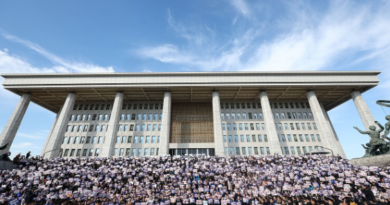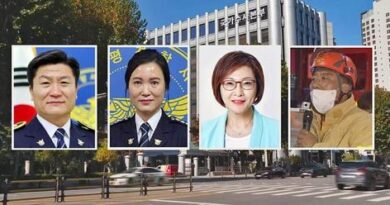Temporary visa-free entry for Chinese group tourists expected to boost domestic demand
Temporary visa-free entry for Chinese group tourists will be permitted from September 29th until the end of June 2026.
The Office for Government Policy Coordination announced on the 6th that it had decided to allow visa-free entry for Chinese group tourists from September 29th to June 30th of next year at a “Tourism Promotion Mini-Policy Task Force” meeting chaired by Prime Minister Kim Min-seok at the Government Complex Seoul.

The meeting, attended by relevant ministries and tourism industry experts, discussed measures to streamline tourism regulations and boost tourism to Korea ahead of the 2025 APEC Summit.
The government discussed and finalized and implemented measures to streamline key tourism regulations to attract more foreign tourists.
The Presidential Committee on State Affairs’ Regulatory Rationalization Task Force selected this as a priority for expedited implementation and proposed it to the government. This issue has been discussed by the task force, the Office for Government Policy Coordination, the Ministry of Culture, Sports and Tourism, the Ministry of Justice, and the Ministry of Foreign Affairs.
First, visa-free entry for Chinese group tourists will be permitted from September 29 to June 30 of next year.
China also allowed visa-free entry for Korean nationals in November of last year, and Korea has also decided to implement a temporary visa-free policy before China’s National Day.
The government stated, “In the current situation where the inbound tourism market is rapidly recovering, the implementation of the visa-free policy is expected to have a practical effect of stimulating domestic demand, such as revitalizing the local economy, by generating additional demand for inbound tourism.”

Furthermore, to improve the convenience of entry for foreigners attending international conferences, the government has decided to expand the eligibility for fast-track benefits and formally institutionalize them.
A simplified entry screening system is currently being piloted for foreigners visiting Korea for international conferences and other MICE (Meeting, Incentive Travel, Convention, Event) events.
The eligibility criteria for fast-track benefits have been relaxed from 500 to 300 foreign participants, with the plan to formally implement the system starting next year following the conclusion of the pilot program.
This is expected to positively impact the competitiveness of the MICE sector and establish Korea as an optimal destination for international conferences.
Furthermore, “international patient attraction performance” has been added to the criteria for excellent medical tourism institutions.
To promote medical tourism, institutions that have received at least 30 medical tourism invitations (visas) or provided at least 500 foreign patient consultations in the past year are designated as excellent medical tourism institutions and are provided with benefits.
Unlike hospitals, tourism operators lack a clinical track record, making it difficult to meet the requirements based solely on visa records. Therefore, the system will be improved to allow those with more than 500 international patient visits to apply for the designation as an excellent tourism institution. This will be implemented in August.
The government also discussed ways to revitalize inbound tourism to Korea during the 2025 APEC Summit.
Specific implementation measures were proposed, including support for promotional and customized tourism program development, and improved reception capabilities, to leverage the 2025 APEC Summit held in Korea as an international tourism asset.
Going forward, the government will closely collaborate with relevant ministries, industry, and academia to develop additional institutional improvements and policy support measures for the tourism sector. These will be discussed at the National Tourism Strategy Council, a cross-ministerial consultative body.
Prime Minister Kim stated, “The 2025 APEC Summit will be a critical opportunity to revitalize domestic tourism,” and instructed relevant ministries, including the Ministry of Culture, Sports and Tourism, to “promptly develop a systematic strategy and specific plans to effectively promote the APEC event.”
[Editor Lee]







